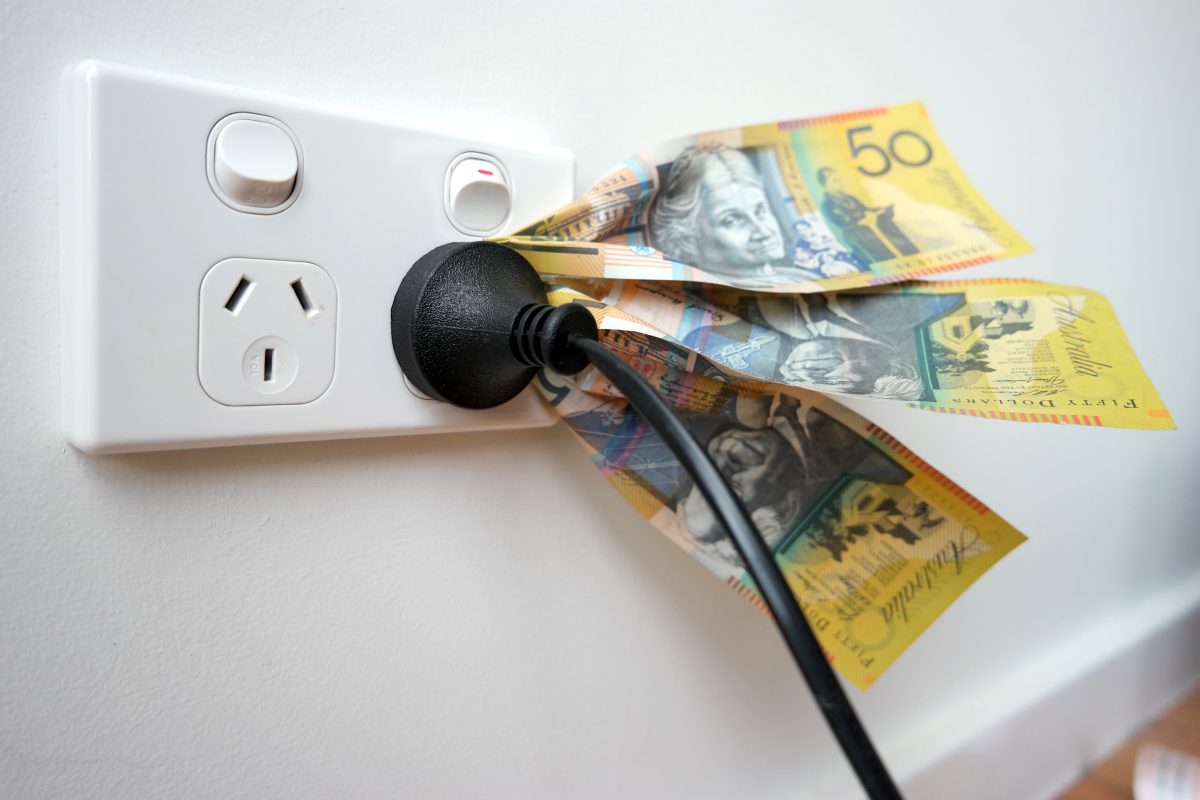
CPRC research has found a “significant gap” between those eligible for energy concessions, and those actually receiving them. Photo: File.
New research has suggested the ACT has the largest gap in the country when it comes to those who are eligible for energy concessions and those receiving the discount on their bill.
The Consumer Policy Research Centre (CPRC) report Mind the Gap: Identifying the gap between energy concession eligibility and concessions received examined the National Energy Market jurisdictions, with its analysis finding the gap in the ACT was 41 per cent, followed by 38 per cent in SA and 35 per cent in NSW.
Report author Ben Martin Hobbs said concessions on energy bills were a direct way to reduce costs for people on low incomes, as well as improve bill affordability.
“In a growing cost-of-living crisis, driven in part by rising energy prices, ensuring people on low incomes receive energy concession and rebate entitlements should be a matter of priority for governments,” he said.
“But rather than being automatically applied to bills, the onus lies with eligible concession holders to ensure their concession is applied and updated to each bill.”
The research examined energy concession/rebate eligibility for the Health Care Card (issued by the Department of Social Service), Pension Concession Card (issued by the Department of Social Service) and the Gold Veterans Concession Card (issued by the Department of Veterans’ Affairs).
According to the report, about 37 per cent of Australians receive an energy concession.
It found there are 48,513 households in the ACT with at least one concession cardholder.
However, it found only 28,505 concessions (59 per cent) had been claimed.
Mr Hobbs said this suggested it may be more difficult to access the concession entitlements in some jurisdictions.
“Currently the onus lies with consumers to ensure concessions are applied to utility bills,” he said.
“In the first instance, consumers must call their retailer to apply their concession card details to their account. But retailers can’t update an expired concession card – consumers must call their retailer with their new concession card when an existing concession expires.
“Health Care Cards have a shorter expiry than Pension Concession Cards – which means particular consumer cohorts may face a higher administrative burden keeping their concession up to date.”
Mr Hobbs also said lack of awareness about schemes and entitlements, difficulties accessing information, low customer awareness that details need to be updated regularly, a push towards direct debit payment and language barriers were also issues.
“As the cost of living goes up, it is extremely important that people with limited incomes access the full range of supports they are entitled to,” he said.
“Reducing barriers to access and removing corporate or government ‘sludge’ – part of the choice architecture that adds friction or difficulty to a consumer’s decision-making – is essential to ensure consumers receive concessions they are entitled to.”
There are places Canberrans can go to work out whether they are eligible for energy concessions, and if they are being applied.
One is the St Vincent’s Home Energy Efficiency Program (HEEP), which advises on how to read energy bills and meters, checks participants’ energy bills for their concessions, and helps low-income households reduce energy bills through other means.
HEEP team coordinator Udaya Kumar said it had been working with major ACT energy retailer ActewAGL to reduce the gap between energy concession eligibility and concession received.
“From our experience, most ActewAGL clients find it much easier to sort out their energy concessions, as ActewAGL has a dedicated team for hardship clients,” he said.
“Most other small energy retailers have difficulty dealing with energy concession issues – our team spends hours on the phone with small energy retailers to discuss the participant issues, but most of the time they are not resolved.”
Mr Kumar said as more people became anxious about energy price increases, he wanted all energy retailers to work together to make sure people were receiving what they were entitled to.
“A representative from every retailer to deal with the energy hardship and energy concession issues would be fantastic,” he said.
“It would resolve the waiting time and help organisations like Vinnies and Care Inc to resolve the energy concession issues when we assist our vulnerable participants.”
Original Article published by Claire Fenwicke on Riotact.





